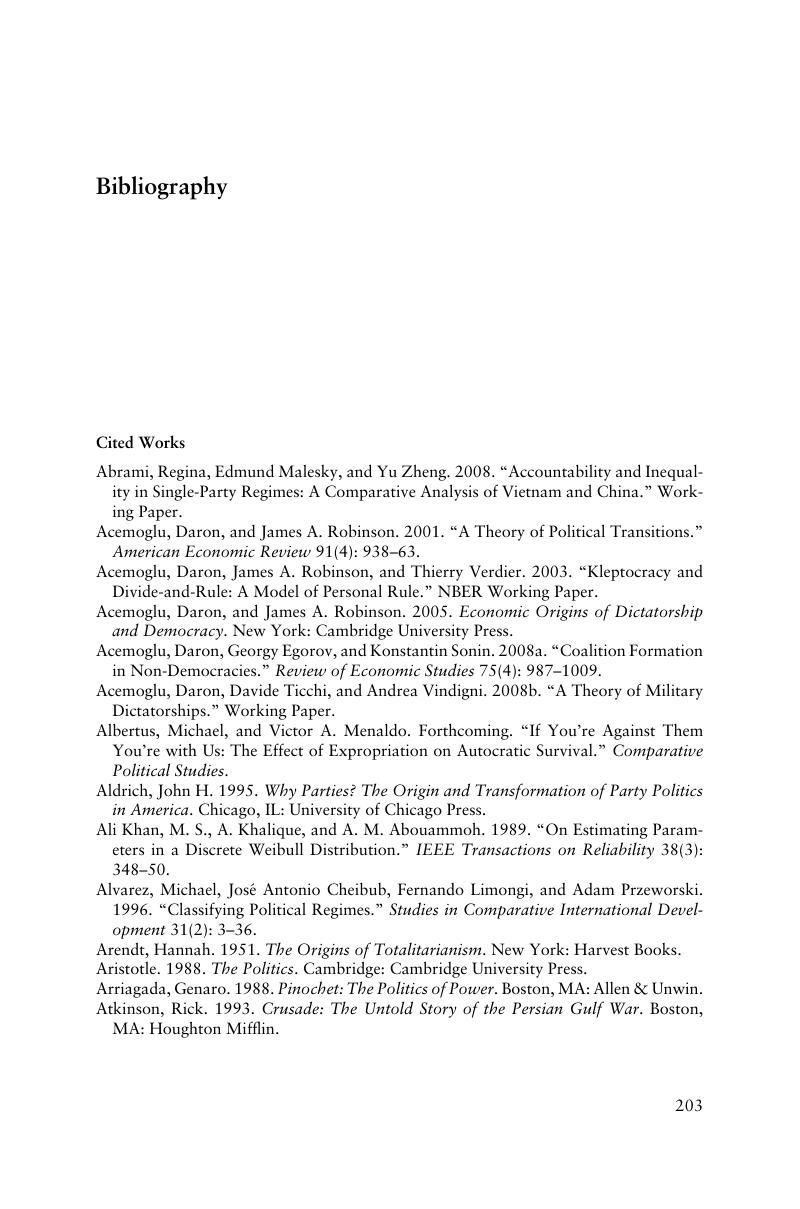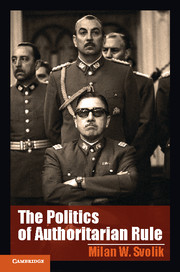Book contents
- Frontmatter
- Contents
- Figures
- Tables
- Acknowledgments
- 1 Introduction: The Anatomy of Dictatorship
- 2 The World of Authoritarian Politics
- PART I THE PROBLEM OF AUTHORITARIAN POWER-SHARING
- PART II THE PROBLEM OF AUTHORITARIAN CONTROL
- Bibliography
- Index
- Other Books in the Series (continued from page iii)
- References
Bibliography
Published online by Cambridge University Press: 05 November 2012
- Frontmatter
- Contents
- Figures
- Tables
- Acknowledgments
- 1 Introduction: The Anatomy of Dictatorship
- 2 The World of Authoritarian Politics
- PART I THE PROBLEM OF AUTHORITARIAN POWER-SHARING
- PART II THE PROBLEM OF AUTHORITARIAN CONTROL
- Bibliography
- Index
- Other Books in the Series (continued from page iii)
- References
Summary

- Type
- Chapter
- Information
- The Politics of Authoritarian Rule , pp. 203 - 222Publisher: Cambridge University PressPrint publication year: 2012
References
- 1
- Cited by

